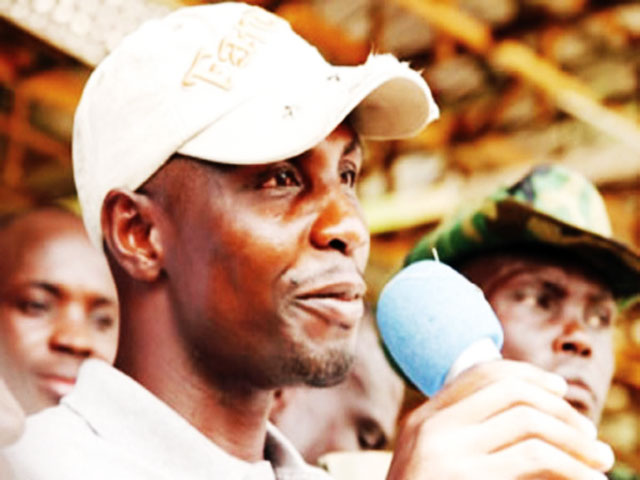Until 2009 when the Federal Government offered militants amnesty, the name Tompolo evoked fear in both militant and security circles. He ruled like a general and his word was law among militants. Some even believed that the 43-year old militant was invincible and had the protection of the Ijaw god of war, Egbesu who could make him disappear in the face of danger.
Indeed, even during the manhunt for him, no one laid eyes on him. Even the security agencies who claimed they were closing in on him had not seen him until he voluntarily gave himself up to be part of the amnesty programme.
Tompolo, whose real name is Government Ekpemupolo has never denied being a founder of the Movement for the Emancipation of the Niger Delta, MEND, the militant group in the forefront of the Niger-Delta crisis.
He had told President Goodluck Jonathan in the aftermath of the Independence Day blasts in 2010 during a meeting of ex-militants with the president, “we want to say sorry. I’m the founder of MEND, but no one here is part of what happened.”
Prior to his surrender in 2009, Tompolo was the commander of one of the strongest militants camps, known as Niger Delta Camp Five located in Gbaramatu Kingdom in Delta State with branches in other parts of the state and the Niger Delta.
It was not until a serial bombardment coordinated by one Nigeria’s best warfare experts, Major General Sarkin Yakin Bello that Camp 5 fell. This was after the military had attacked the camp after the militants had killed some JTF men, but they had no success.
The chapter came to an end in 2009 and today, Tompolo is a high chief in Gbaramatu Kingdom, an arrowhead of the FG’s amnesty programme and influential in the Delta State Government and has secured a mouth watering contract from the FG to secure pipelines.
It has shown that Tompolo’s fortunes have turned out to be good ever since the military razed down the palace of the royal father of Gbaramatu at Oporoza in search of him.
However, the ex-militant leader has had to tighten security around him as he’s being threatened by those who used to fear him in his heydays as a militant.
The incredible story is told of how crude oil theives have been threatening Tompolo for daring to stop their trade, to the point that a top member of the oil theft syndicate in Gbaramatu stormed Tompolo’s country home in Oporoza to shoot him.
He was however overpowered by some ex-militants who also warned him of the futility in fighting Tompolo simply because the ex-militant leader was fighting crude oil theft.
Following that incident, Tompolo immediately ordered that his security be beefed up with specific orders on who should visit him and when.
A source close to Tompolo said, “Ever since he got the pipeline surveillance contract, he has been doing his best to secure the pipelines but the boys are being stubborn.
“He knows those involved in the business and their sponsors. He has been going around the different communities trying to get them to desist from the act, but some of them feel he has no right to tell them to stop.”
“His concern goes beyond just the economic but also the environmental impact of what they’re doing. However, they’ve asked him not to come to the river to disturb them again in his own interest,” he said.
It was gathered that the syndicate is of the opinion that if Tompolo was given a surveillance contract, he should collect his share and let them be.
The Federal Government has renewed its fight against crude oil thieves in the Niger Delta when last month it mandated the Joint Task Force’s Operation Retrieve Hope renamed to Operation Pulo Shield to plug oil leakages which leads to d draining of the economy.
Since the reorganization, the task force has cracked down on crude oil thieves, making arrests and seizing equipment.
Shell also raised an alarm last Monday that its Nembe Creek pipeline, a key pipeline has been repeatedly attacked crude oil thieves, less than 18 months after the old line had been replaced due to sabotage.
Authorities have warned that highly organized crude oil theft, known locally as ‘bunkering’ is on the rise.
It involves thieves tapping pipelines to siphon crude which is either sold straight or refined locally first, before it is sold to waiting vessels at sea.
On Christmas Eve last year, the line was shut down due to leaks caused at two bunkering points, and since the repairs, 50 theft valves have been discovered, in one case, 17 illegal bunkering points were found in a distance of 3.8km, according to a statement from Shell.
In the statement, Mutiu Sunmonu, the head of Shell’s Nigerian joint venture, SPDC, said that the level of crude theft at NTCL could no longer be tolerate as it was difficult to sustain production as facilities have been shut down to fix the problem.
“This happened three times between 26th and 30th January alone,” he said.
Shell resumed production on the line January 23 after repairs due to the December incident which had caused it to declare a force majeure, a legal term that it may not meet its contractual obliations due to circumstances beyond its products.
The line’s current daily output is 140,000bpd.
Despite Shell’s travails, activists still accuse it of not doing enough to prevent spills.
A United Nations report also accused its Nigerian joint venture to task over oil pollution, saying that its procedures for control and maintenance of infrastructure haven’t been followed and spills sufficiently cleaned up.

